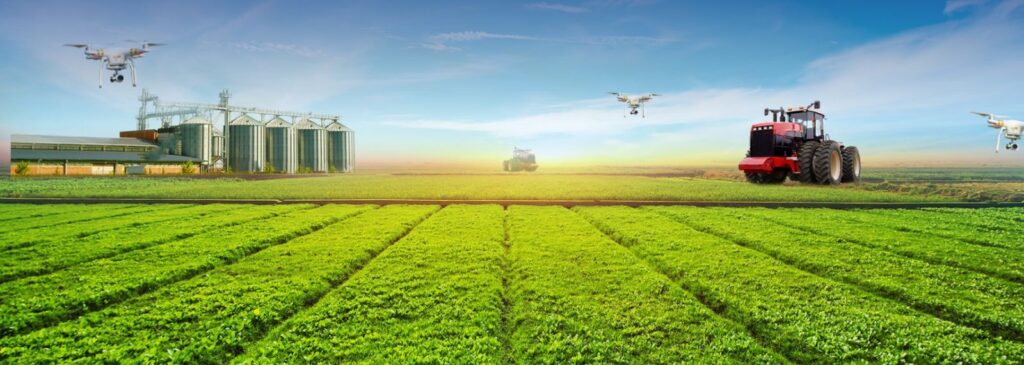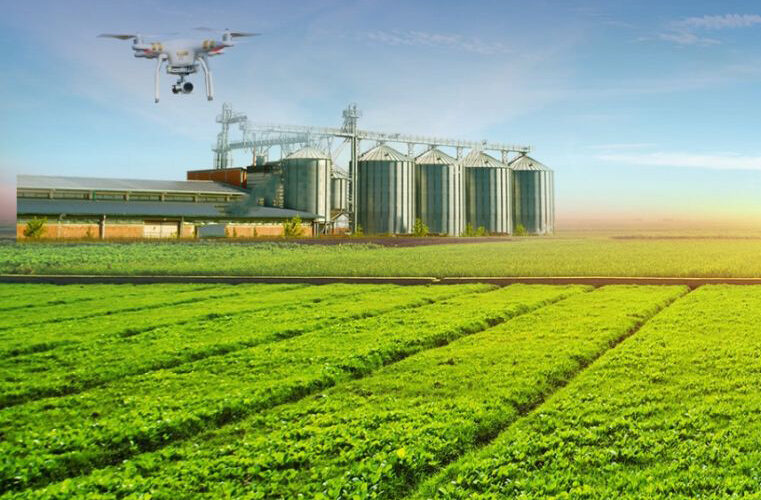Những người tiên phong
Là một trong những doanh nghiệp (DN) tiên phong trong việc ứng dụng trí tuệ nhân tạo vào sản xuất nông nghiệp, Công ty CP Phát triển nông nghiệp Hải Âu (Seagull ADC, Hậu Giang) đã dùng cảm biến để đo độ ẩm trong nhà màng trồng dưa lưới, đồng thời bổ sung lượng nước cho phù hợp. Khi độ ẩm lên quá cao, hệ thống sẽ tự động kích hoạt quạt thông gió để hút không khí ẩm ra ngoài. Khi nhiệt độ tăng cao, màn che nhà lưới sẽ tự động phủ rộng để cắt hoặc che nắng…

Bà Nguyễn Thị Phương Thảo – Phó Tổng giám đốc Công ty TNHH Đầu tư sản xuất phát triển nông nghiệp VinEco tiết lộ: “Trí tuệ nhân tạo đã giúp chúng tôi rất nhiều trong việc tạo dựng nền nông nghiệp công nghệ cao; giúp chúng tôi xây dựng kế hoạch sản xuất dựa theo mô hình khí hậu, thổ nhưỡng của từng vùng…”.
Công ty CP Lavifood cũng là đơn vị đi đầu trong ứng dụng công nghệ thông minh vào trồng trọt, sản xuất để đảm bảo mọi quá trình từ khâu làm đất, gieo trồng, chăm sóc, thu hoạch đến chế biến đều được quản lý và kiểm soát chặt chẽ theo các tiêu chuẩn cao nhất của thế giới. Năm 2017, Lavifood đã đầu tư xây dựng nhà máy chế biến rau, củ, quả Tanifood tại Tây Ninh với vốn đầu tư 1.500 tỷ đồng, mỗi ngày tiêu thụ 500 tấn xoài, chanh dây, dứa, thanh long…
Để chủ động nguồn nguyên liệu sản xuất, Lavifood đã chuyển giao ứng dụng công nghệ vào quá trình trồng trọt cho nông dân Tây Ninh. Với ứng dụng này, người nông dân biết được độ ẩm của đất và lưu lượng nước tưới tiêu. Ứng dụng cũng “nhắc” nông dân ngày nào cần bón phân với liều lượng nào thích hợp và cảnh báo sâu bệnh. Với Lavifood, họ cũng biết được vùng đất này phù hợp với cây gì, cần phải bổ sung gì cho đất, từ đó hợp tác với các công ty phân bón sản xuất một số loại phân bón đặc thù vừa cải tạo đất, vừa tốt cho cây.
AI – chìa khóa của mọi công nghệ
Tại Việt Nam, AI mới được sử dụng gần đây, trong khi ở các nước, ứng dụng này đã bắt đầu phổ biến. Đặc biệt, các hãng công nghệ lớn như Google, Amazon, Microsoft đã liên tục phát triển AI, trong khi các hãng sản xuất thiết bị di động như Apple, OPPO đẩy mạnh việc phổ cập khái niệm này đến người dùng phổ thông bằng các sản phẩm của mình.
Lâm Đồng – thủ phủ nông nghiệp công nghệ cao của Việt Nam là nơi tập trung hầu hết các ứng dụng hiện đại nhất trong lĩnh vực nông nghiệp. Ở không ít các trang trại tại Lâm Đồng, chỉ cần một chiếc máy tính bảng hay điện thoại thông minh có kết nối mạng, các thiết bị cảm ứng và phần mềm điều khiển tự động từ xa, người làm vườn sẽ biết vườn cây cần bón phân gì, số lượng bao nhiêu, diện tích nào cần tưới nước, tưới bao nhiêu là vừa. Căn cứ vào các dữ liệu đó, máy tính sẽ cho nhà nông biết cần phải điều chỉnh các chỉ tiêu nào và mọi hoạt động đều được điều khiển thông qua các thiết bị thông minh.
Ông Phạm S – Phó Chủ tịch UBND tỉnh Lâm Đồng nhấn mạnh: Nông nghiệp thông minh là nông nghiệp mà trong suốt quá trình sản xuất ứng dụng các công nghệ tiên tiến, hiện đại; sử dụng các thiết bị thông minh được kết nối bên trong và bên ngoài của trang trại/DN dựa trên nền tảng công nghệ thông tin để quản lý nông nghiệp an toàn thực phẩm, hiệu quả và bền vững, thích ứng với biến đổi khí hậu và hội nhập quốc tế.
“Quá trình triển khai cần theo phương châm “đi ngay, đi nhanh và đi chính xác với cây trồng, vật nuôi, công nghệ phù hợp, mục tiêu lấy hiệu quả làm chính”, phấn đấu đến năm 2020 có mô hình nông nghiệp thông minh 4.0 hoàn chỉnh” – ông Phạm S nhấn mạnh.

Comments are closed